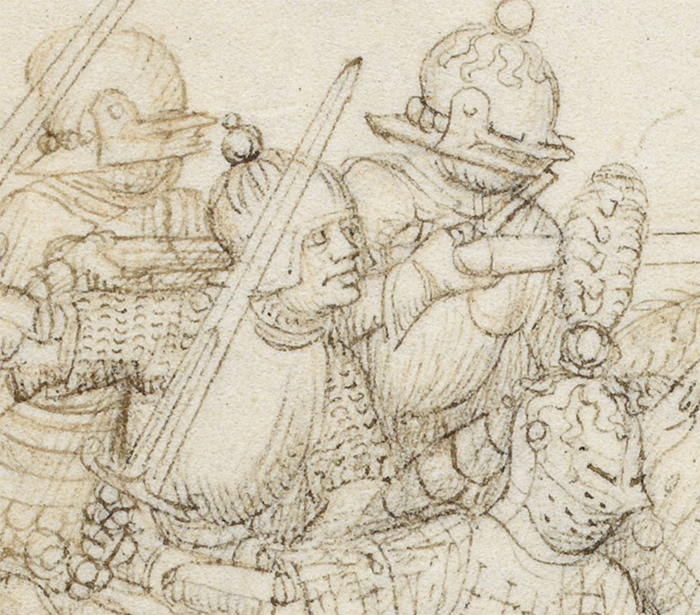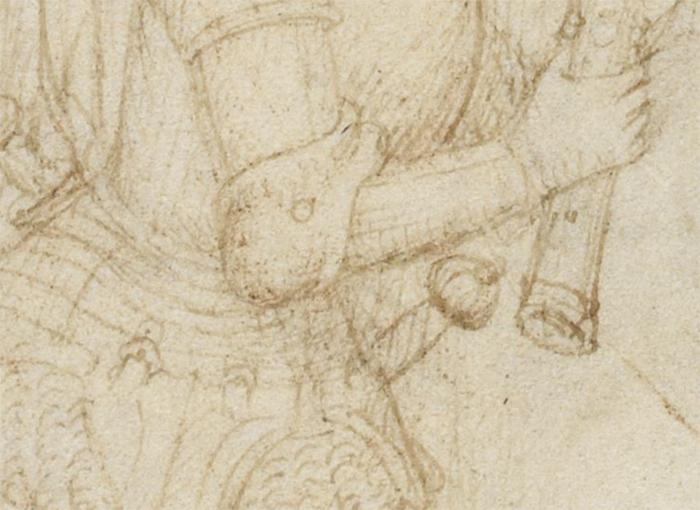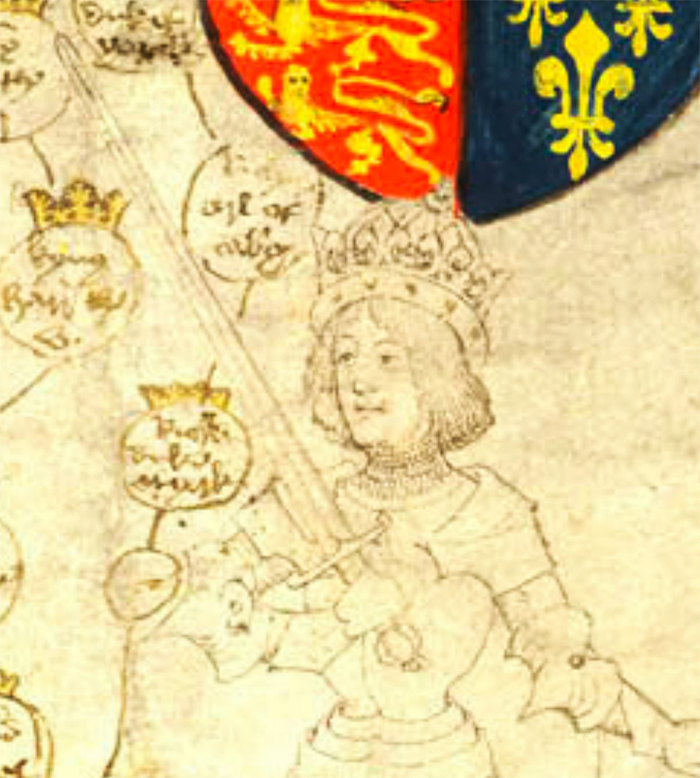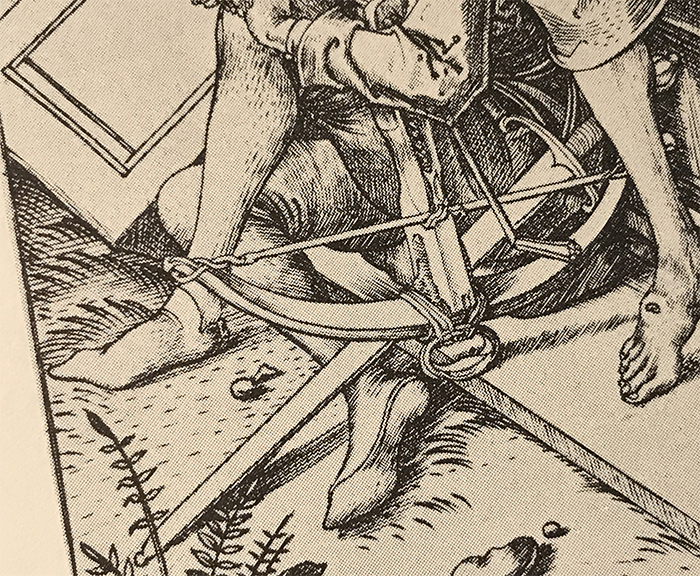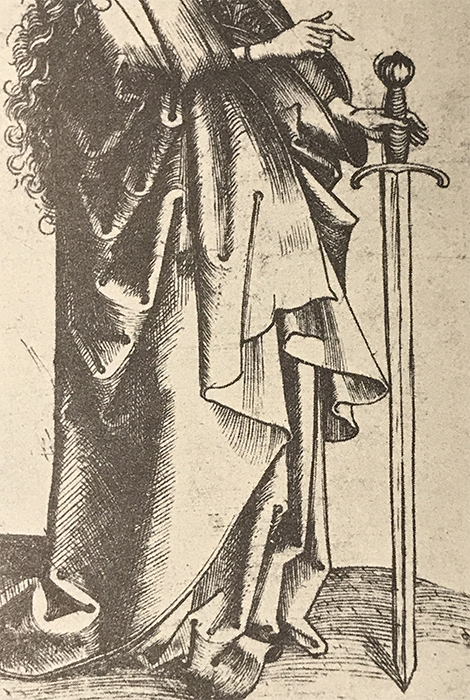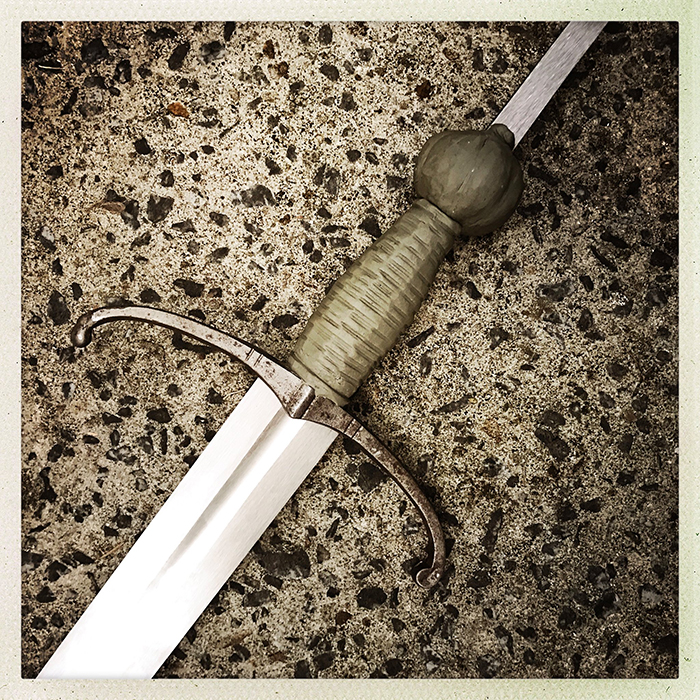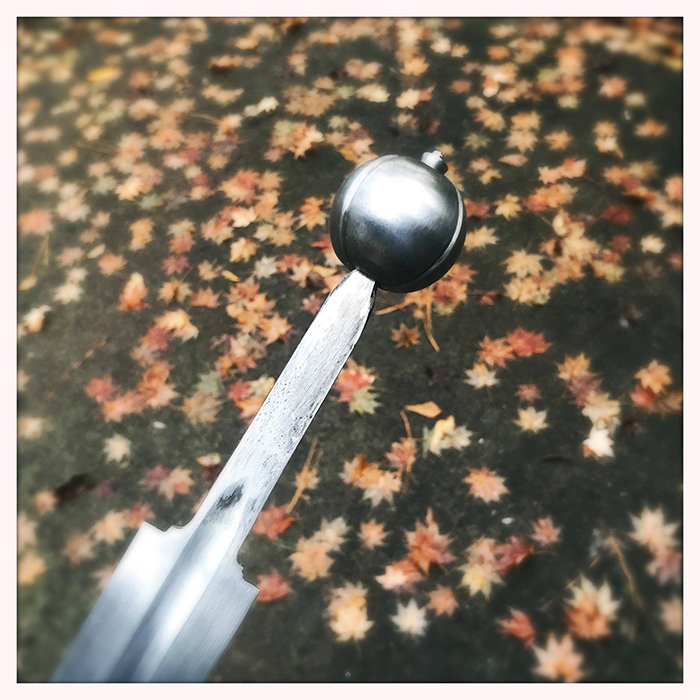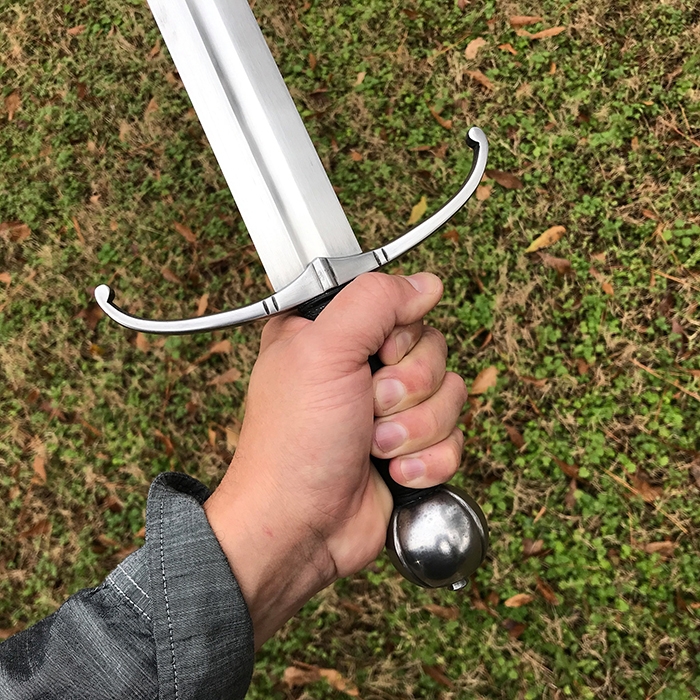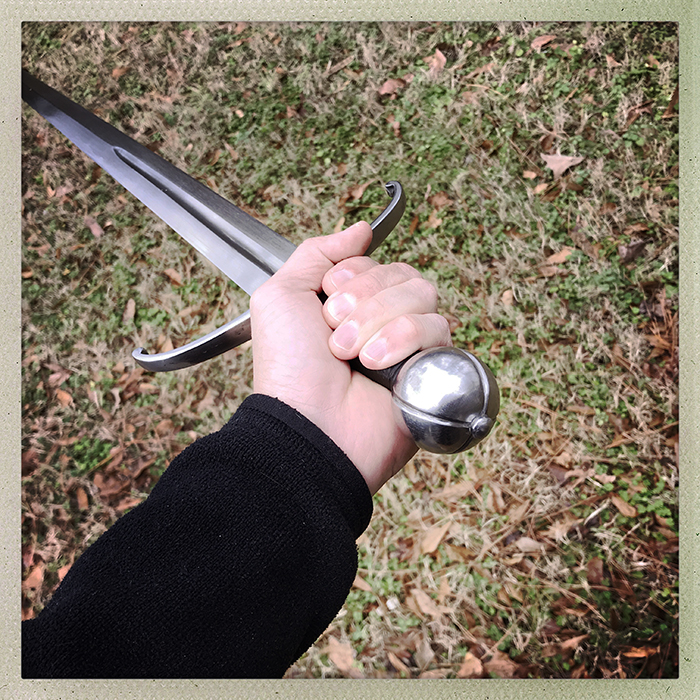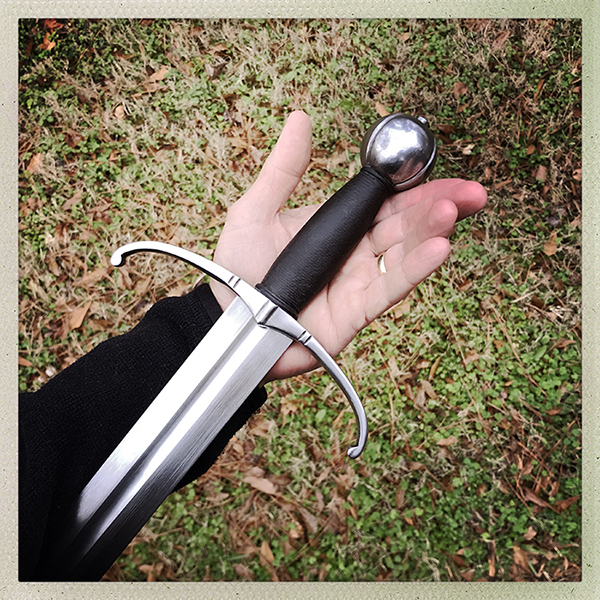Most of the single-hand swords in these documents are Type XVIII variants with Oakeshott Type J or K pommels, but the artist frequently associates lobed Type R pommels with high status individuals. I like the look of these and decided to build one.
For this project I used a modified Hanwei-Tinker fullered bastard sword blade, modified A&A Henry V guard that came to me as a rough-cast discard (due to the steel not filling in one terminal of the mold, apparently) and a pommel adapted from an Alchem 1.75” ball. I shortened the blade from the shoulder, tang and tip. In retrospect, I think I’d prefer to work only from the tang and shoulder. Instead of doing just a little work on the stock tip I had to create an entirely new tip that’s slightly thicker than I would prefer. It’s a small matter, though. A couple of the other H-T blades would be fine alternatives to this one.
I found many illustrated examples of Type R pommels, not only in the Rous manuscripts but also in Continental artwork. Surviving examples are scarce, but there is one pictured in ROTMS and identified as Italian. If the elites in the Rous manuscripts are assumed to be wearing Continental (esp. Italian) harness, perhaps their sidearms are Italian as well.
I noticed an unusual crenelated peen block atop one or two pommels in the Rous Roll. This is unusual even among the unusual Type R pommels depicted by Rous/Caxton Master. My first thought was that it’s a crown, given the royal figure holding it, but then I noticed how closely the combined pommel and block resemble a pomegranate. Other lobed Type Rs in these documents are more onion-like at one extreme and more perfectly round at the other. Pomegranates can be lumpy, so the lobes shown here might be aimed at representing that in a stylized and symmetrical way befitting a high-status weapon. But why a pomegranate? In the medieval period, the fruit was associated with resurrection, eternal life and fertility. The Rous Roll and Pageants of Richard Beauchamp are commemorations of deceased noblemen, commissioned by Ann Neville (widow of Richard III) and Anne Beauchamp (daughter of Richard and widow of “Kingmaker” Richard Neville, Earl of Warwick). Combining the pomegranate symbol with the status of a sword makes sense artistically, culturally and technologically.
I chose to emphasize that pomegranate form (minus the crenelated block) because I like the idea of it and couldn't un-see it once I'd seen it. I chose incised lines instead of the deep lobes I’ve used in earlier projects because I needed to retain weight in the hilt.
I’m pleased with the results. This sword feels very strong and eager to cut when in motion. It feels and looks special with that R pommel. You won't see another off-the-rack, which is a shame--I'd love to see one of our great craftsmen produce one of these. The illustrations show us exactly how to develop these projects, from proportions to suspension. I expect to develop a scabbard and suspension for this sword, but this is all for now.
DATA
weight: 2.1 lbs
overall length: 36.5”
center of gravity: 4.75”
blade length: 31”
blade width at guard: 1.5/8”
blade width 1” above tip: .75”
guard width: 7”
